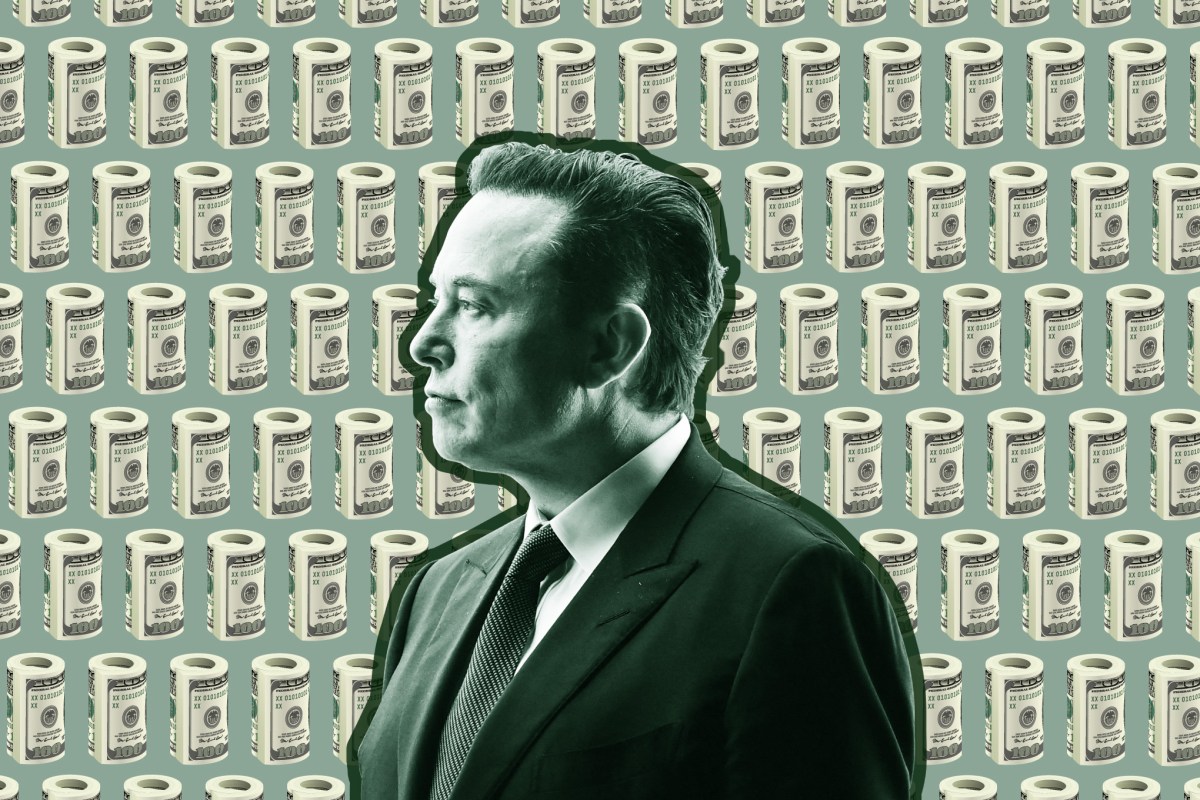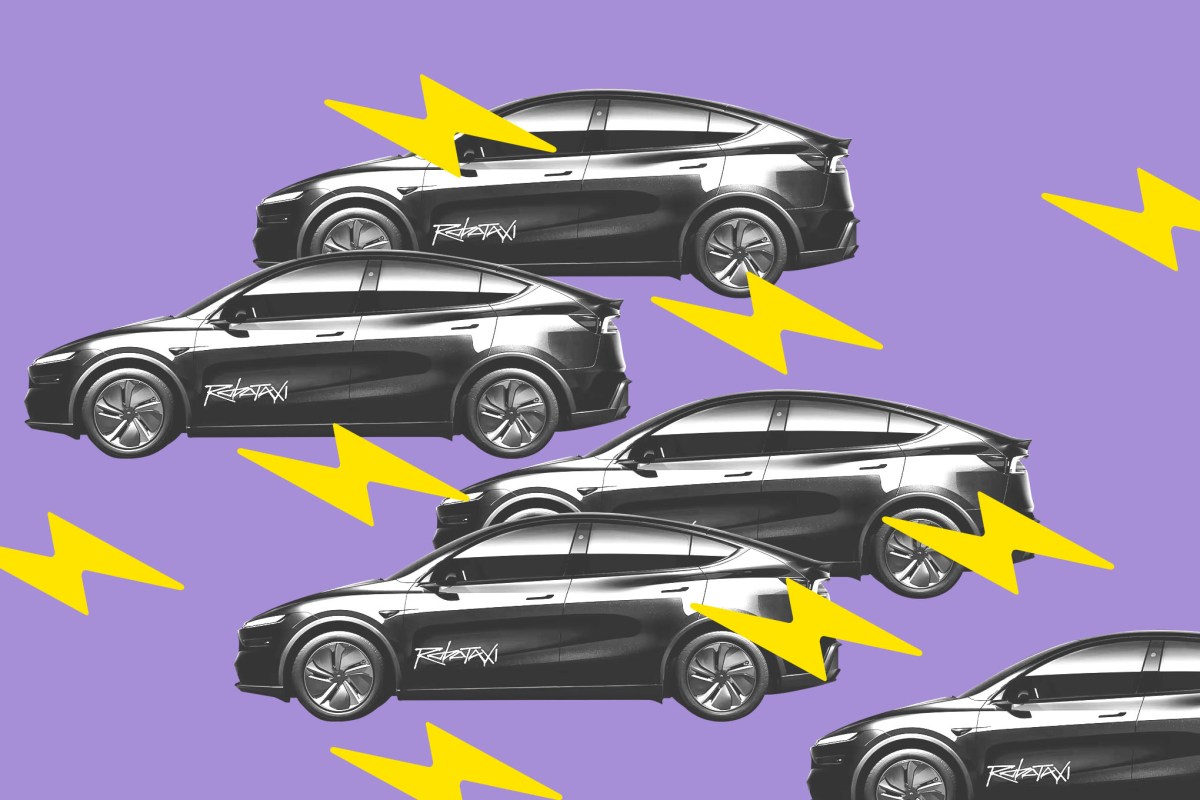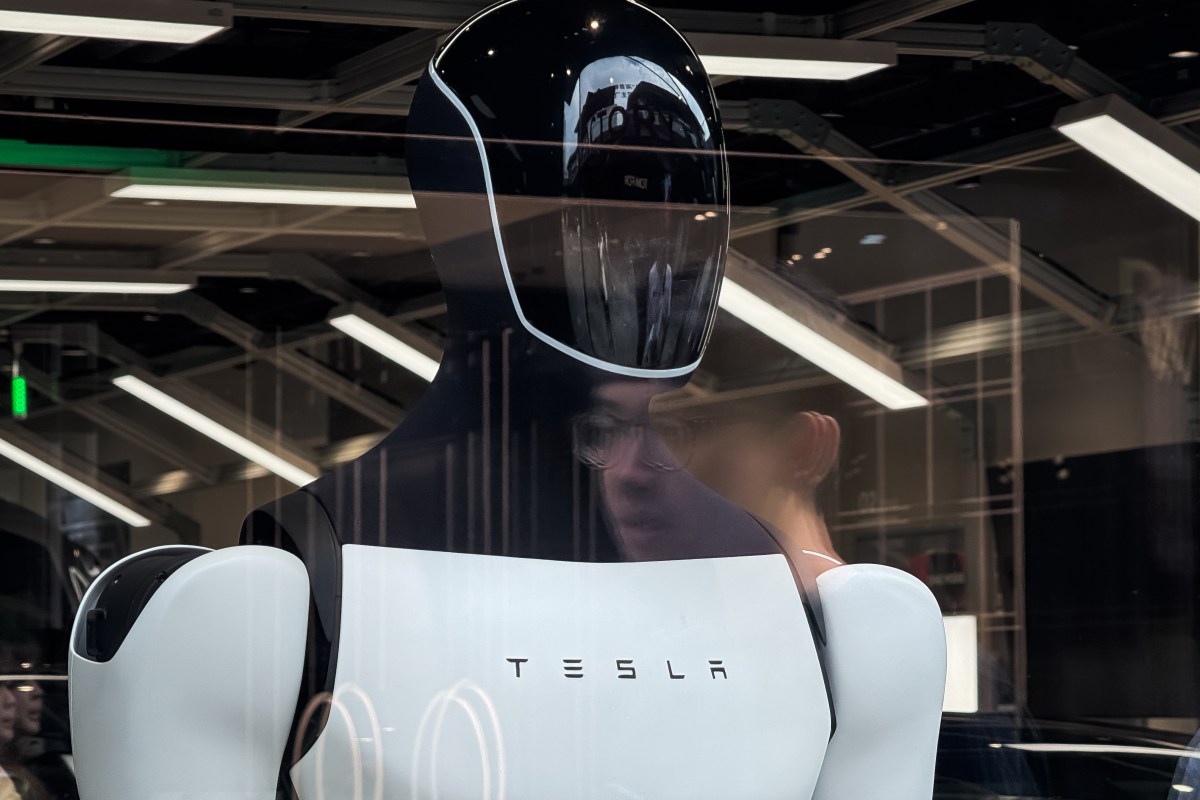
On Thursday, Tesla shareholders will vote on whether to grant Elon Musk an enormous pay package, the largest ever awarded to a chief executive by orders of magnitude, or risk him leaving the company in a huff.
If this sounds weirdly familiar, it’s because the same thing unfolded nearly a year ago. At the 2024 meeting, Tesla shareholders were urged to vote in favor of a $50 billion payday for Musk, in order to keep him on the job as CEO. This time the money is much greater — estimated to be worth $1 trillion — and the stakes for Tesla are much higher.
The proposal, put forward by Tesla’s board in September, says that Musk must “completely transform Tesla and society as we know it” by delivering millions of humanoid robots and self-driving cars in order to earn the compensation. Conversely, Musk would get “zero” unless he meets these “incredibly ambitious” goals.
The trillion dollar question
Under the proposed pay package, Musk would need to meet certain milestones, such as producing 1 million robotaxis and 1 million humanoid robots, as well as increase Tesla’s valuation by trillions of dollars. Each milestone unlocks tens of billions of dollars in compensation for Musk. It would increase his stake over a decade from about 15 percent to around 25 percent.
But Tesla’s claims that Musk will get nothing if he fails to hit these benchmarks isn’t exactly true. He could collect $50 billion — the original proposal from last year that was struck down by a Delaware judge — even while missing most of the targets set out in the proposal. Even hitting just two of the easiest targets, along with modest stock growth, would net Musk $26 billion, according to Reuters.
“That means he gets one-seventh of the value that he would create, something like 12 to 13 percent,” said Gregory Shill, law professor and corporate governance expert at Arizona State University. “That’s very high for an executive comp package. A typical public company CEO would usually get low single digit percentage point incentive package… I would say this looks more like the type of incentive package you would give managers at a portfolio company owned by a private equity firm.”
The vehicle sales milestone, for example, seems like an easy layup. If Tesla sells 1.2 million cars a year over the next decade, on average, Musk earns $8.2 billion in stock — as long as Tesla’s market value grows from $1.4 trillion today to $2 trillion in 2035. That’s a half-million fewer cars per year than Tesla sold in 2024. And other product goals are written in such vague language that Musk could still see enormous payouts without significantly boosting profit, Reuters says.
So the $1 trillion question is: does Musk even need to reach $1 trillion to become the richest man alive — or the richest in history? Maybe the $1 trillion is just a distraction, a false goal, an attempt to generate outage and virality, which is always lurking Musk’s motivations. Maybe all he needs to do is achieve modest growth, deliver a few robots, prop up a handful of robotaxis, in order to rake in more money than God.

Lobbying blitz
The outcome of the vote is hardly in dispute. Unlike the last vote, Musk will be able to vote his own shares this time, making the likelihood for success extremely high. And yet Tesla’s board members have been engaged in an intense lobbying campaign throughout the fall, warning shareholders that failure to grant Musk his enormous payout would compromise Tesla’s future and perhaps spur the mercurial CEO to leave the company.
They’ve run digital and social media ads, including on Musk’s own platform, X, and even created a dedicated website advocating for a yes vote. Tesla board chair Robyn Denholm has taken the extra step of appearing in numerous TV interviews, dangling the possibility of immediately appointing a new CEO in the aftermath of a “no” vote.
“The fundamental question for shareholders at this year’s Annual Meeting is simple: Do you want to retain Elon as Tesla’s CEO and motivate him to drive Tesla to become the leading provider of autonomous solutions and the most valuable company in the world?” Denholm wrote in a recent letter to shareholders.
Tesla isn’t content with a mere victory; it needs to run up the scoreboard to prove that Musk — and only Musk — can lead this company to new heights, said Ann Lipton, a professor of corporate governance at the University of Colorado’s law school. A wide margin of support could help reinforce Musk’s legitimacy and influence, especially in light of Tesla’s struggles over the past year.
“He’s done a lot of things that have obviously hurt Tesla sales,” Lipton said. “Now, if you think Tesla’s a car company, that’s a problem. He’s become extremely polarizing. He’s managed to piss off people on both the right and the left. So I think they may be worried about that.”

Institutional opposition
The stakes are high, given the current status of Musk’s compensation. Last year, a Delaware court voided Musk’s $50 billion pay package, arguing that the deal was flawed and that Musk held undue influence over the board. Shareholders had voted twice to approve the hefty compensation, but the judge still upheld her ruling blocking it. Tesla has appealed the decision to the Delaware Supreme Court. In response, Musk orchestrated a vote to move the company’s incorporation to Texas, which doesn’t have the decades of corporate legal precedent like Delaware.
If the new pay package passes but with a tight margin, it could signal serious doubts about Musk’s leadership and Tesla’s governance, Lipton said. The bigger victory would not directly influence on the Delaware Supreme Court’s decision, but it would carry symbolic weight, making it politically harder for the justices to affirm the earlier ruling against Musk.
Institutional investors are already showing signs of wariness over the vote. Norway’s sovereign-wealth fund, which owns a 1.2 percent stake in Tesla, voted against it. Smaller public pension funds, such as the American Federation of Teachers and various New York City retirement systems, have also come out against it, as have major proxy advisory firms Institutional Shareholder Services and Glass Lewis. In a recent earnings call, Musk called those proxy firms “corporate terrorists.”
Fanboys
While institutional investors remain important, Musk’s biggest base of support are his fanboys — the retail shareholders. Traditionally most retail shareholders don’t vote in these types of meetings. But Tesla has shown it can mobilize this otherwise passive base of support. It did it last year, when over 463 million retail shares voted in the 2024 shareholder meeting, representing over 38 percent of an estimated total of 1.21 billion retail shares, according to an analysis by Columbia University.
Not all Tesla shareholders are fanboys. Musk’s 2018 pay package was voided after a shareholder sued the company, arguing that Tesla’s board was too chummy with its already very rich CEO. Texas law bans similar suits from shareholders who own less than 3 percent of the company, so another challenge seems unlikely.
This week, The Wall Street Journal reported that Musk is spending more time at his AI company, xAI, than at Tesla. The compensation package is aimed at luring him back to the EV company, even though Musk seems more motivated by the idea of creating a “robot army.”
“I’m not going to build a robot army if I can be kicked out,” he said on the All-In podcast recently.
Tesla is inarguably one of the strangest, most unique companies in American corporate history. Its market behavior is driven less by fundamental logic and more by emotional or psychological factors surrounding Musk himself. It is the granddaddy of all meme stocks.
“There’s very little evidence of any dissent or daylight between the board and Musk on any issue,” said Stephen Diamond, a corporate governance expert at Santa Clara University. “You just have to wonder whether that’s really a rational way to run the company.”
If past is prologue, shareholders are likely to approve the board’s proposal to gift Musk more control over the company. They would be foolish not to, given the company’s stock performance even amid falling sales and rising Nazi salutes. The margin of that vote, though, could say more about Tesla’s future than the outcome itself.

-
 C114 Communication Network
C114 Communication Network -
 Communication Home
Communication Home


